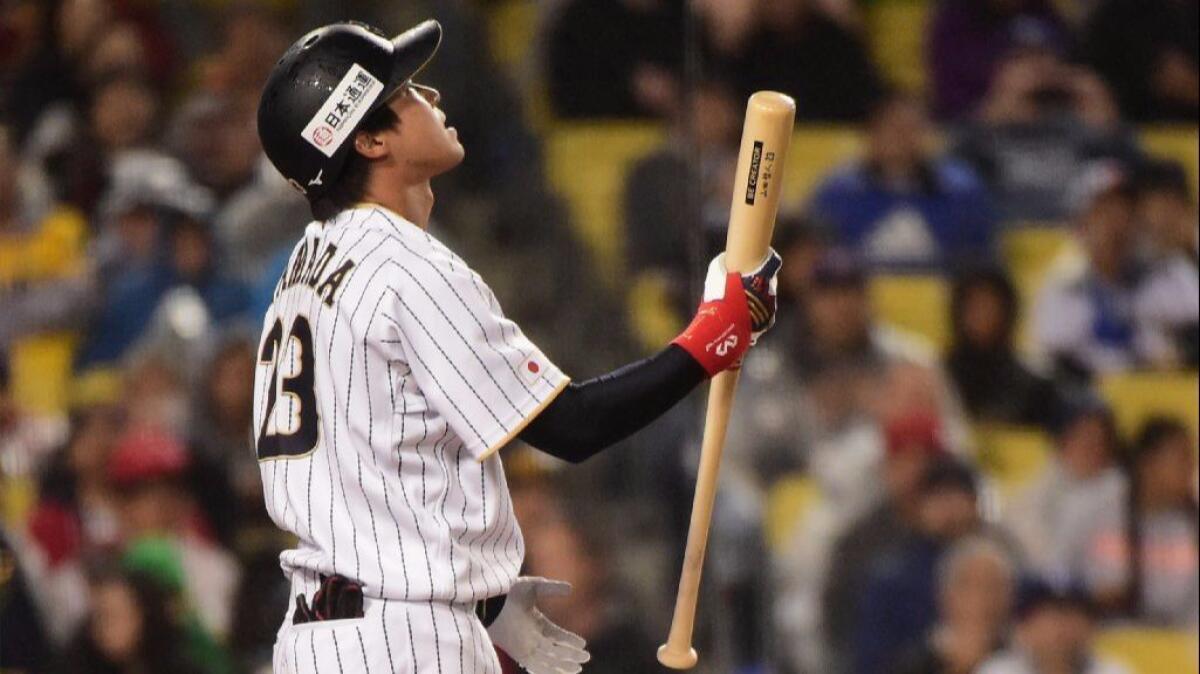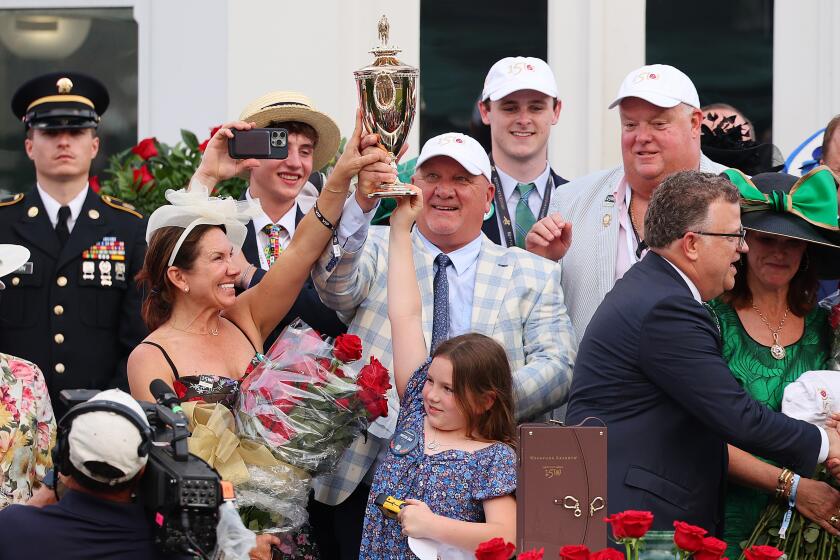Japan’s cheering section, complete with trumpets and whistles, tries to make things as normal as possible

The drum, the trumpets, the whistles, the chants, they started coming from the left field pavilion at Dodger Stadium as Tetsuto Yamada walked from the on-deck circle to the batter’s box in the first inning.
“Katto-base Ya-ma-da!”
Loosely translated: Smash it, Yamada.
The Japanese players were seranaded like this for each of their at-bats in a 2-1 defeat to the United States in the semifinals of the World Baseball Classic.
Every at-bat. Every inning.
“In Japan, this type of cheering is standard,” Yoshihide Kubo said in Japanese. “We want the players on Samurai Japan to be able to play games in as normal conditions as possible.”
Kubo was the leader of the group responsible for the festive noise that could be heard throughout the stadium, a nine-man band that traveled here from Japan with a drum, eight trumpets and a giant Japanese flag.
The ensemble was another national team of sorts, an assembly of members from the semi-official cheering sections, known as ouendan, of the various teams in Japan’s professional baseball league. Helping organize the group was Shinya Yoneda, who serves as an intermediary between the Tokyo Giants and their ouendan.
The group had about 30 members for the first couple of rounds of the WBC. Work and other responsibilities reduced the group to nine for the portion of the tournament that was held in the United States.
As the owner of his own design company, Kubo was able to make the trip. He also traveled to the United States for Japan’s previous semifinal appearance in the WBC.
Kubo lives in Tokyo, but is a fan of the Osaka-based Hanshin Tigers. He estimates he helps lead cheers at 45 to 50 of their games every season, most of them road games in the northern part of Japan.
Musical instruments are generally not permitted at Dodger Stadium, but an exception was made for the WBC. Japanese stadiums generally don’t permit instruments, either, but members of cheering groups can receive exemptions if they obtain special cheering group credentials. Everyone in Kuro’s party wore their Japanese league-issued credentials around their necks.
Kubo said the group was proud of Japan’s elevated place in the global baseball hierarchy.
“We want them to remain in that position,” Kubo said. “So we cheer them on. At the same time, we want the world to see the cheering style of Japan.”
Follow Dylan Hernandez on Twitter @dylanohernandez
More to Read
Go beyond the scoreboard
Get the latest on L.A.'s teams in the daily Sports Report newsletter.
You may occasionally receive promotional content from the Los Angeles Times.











